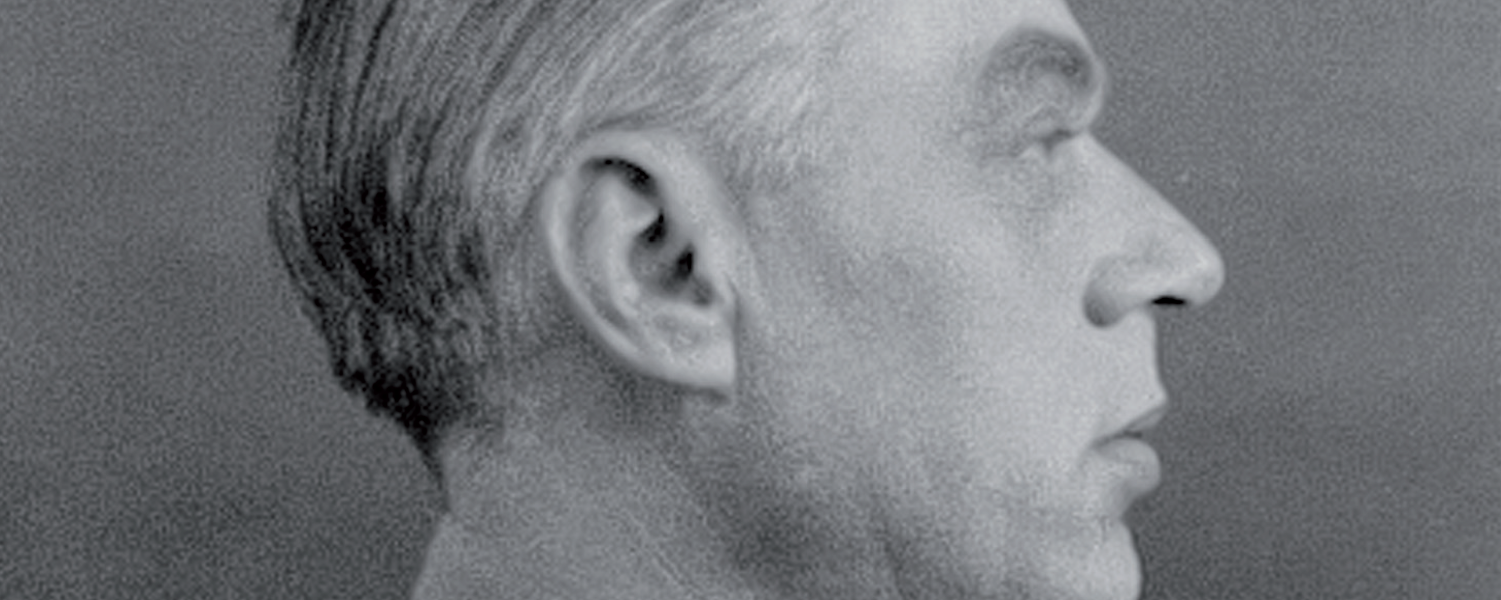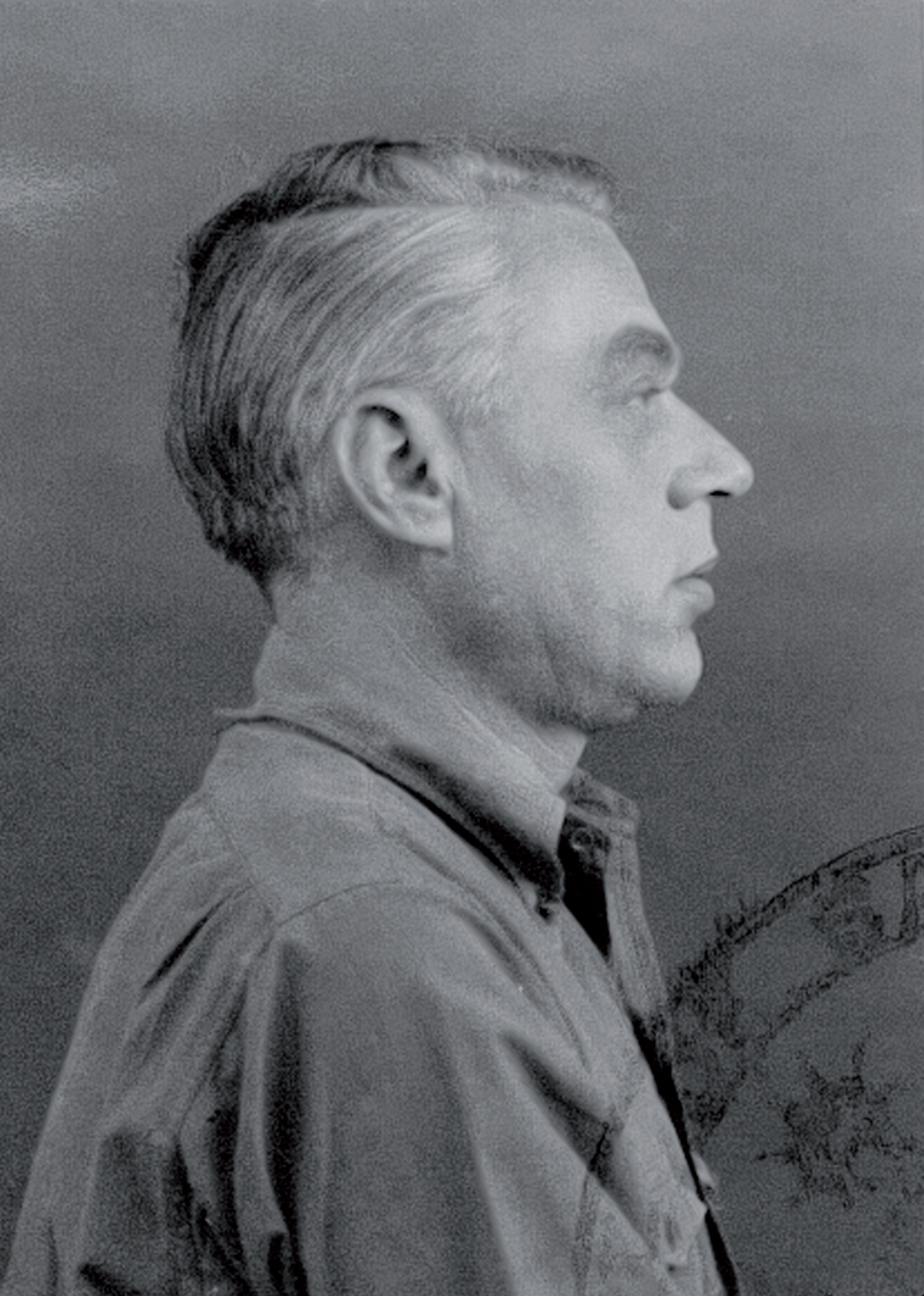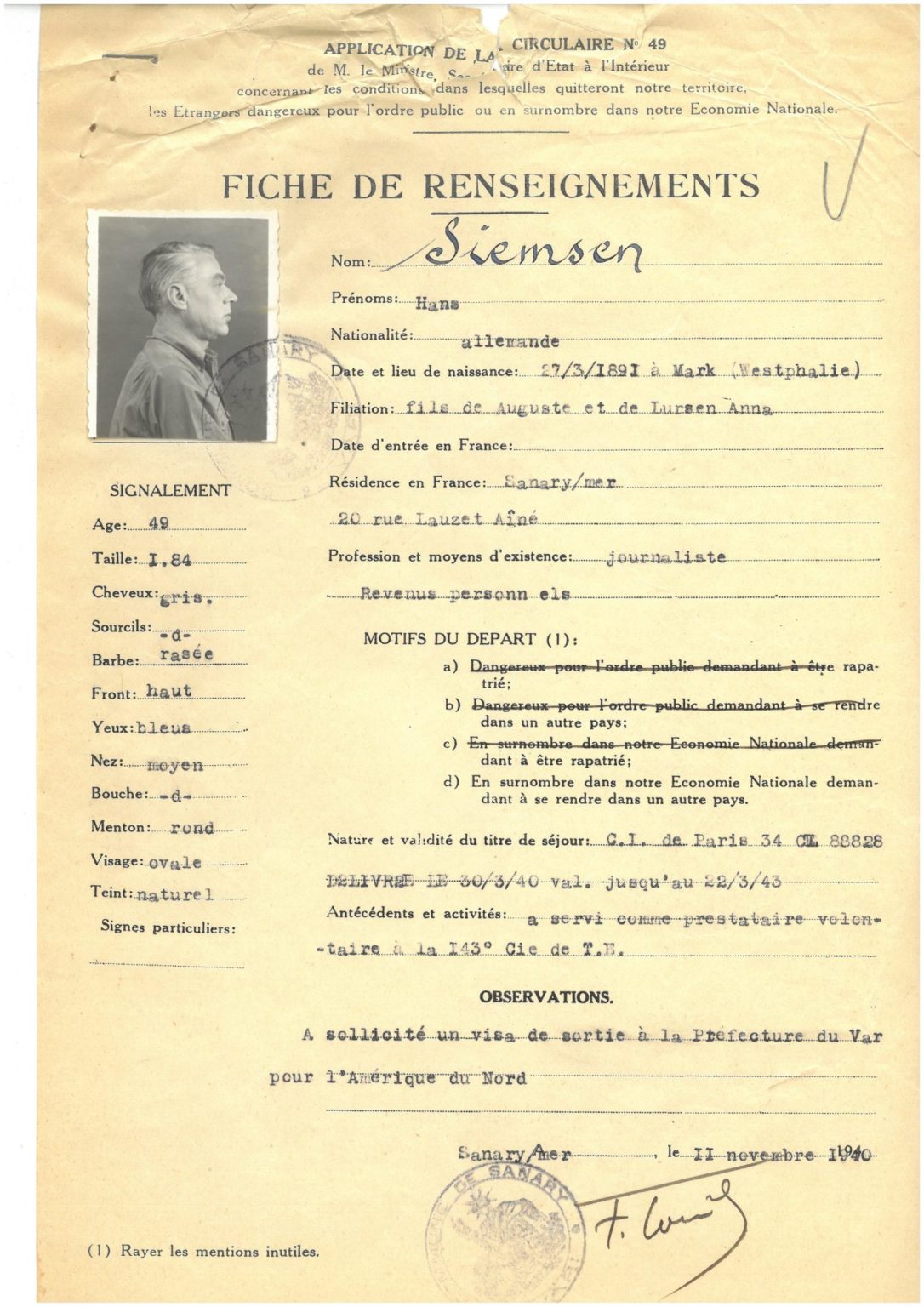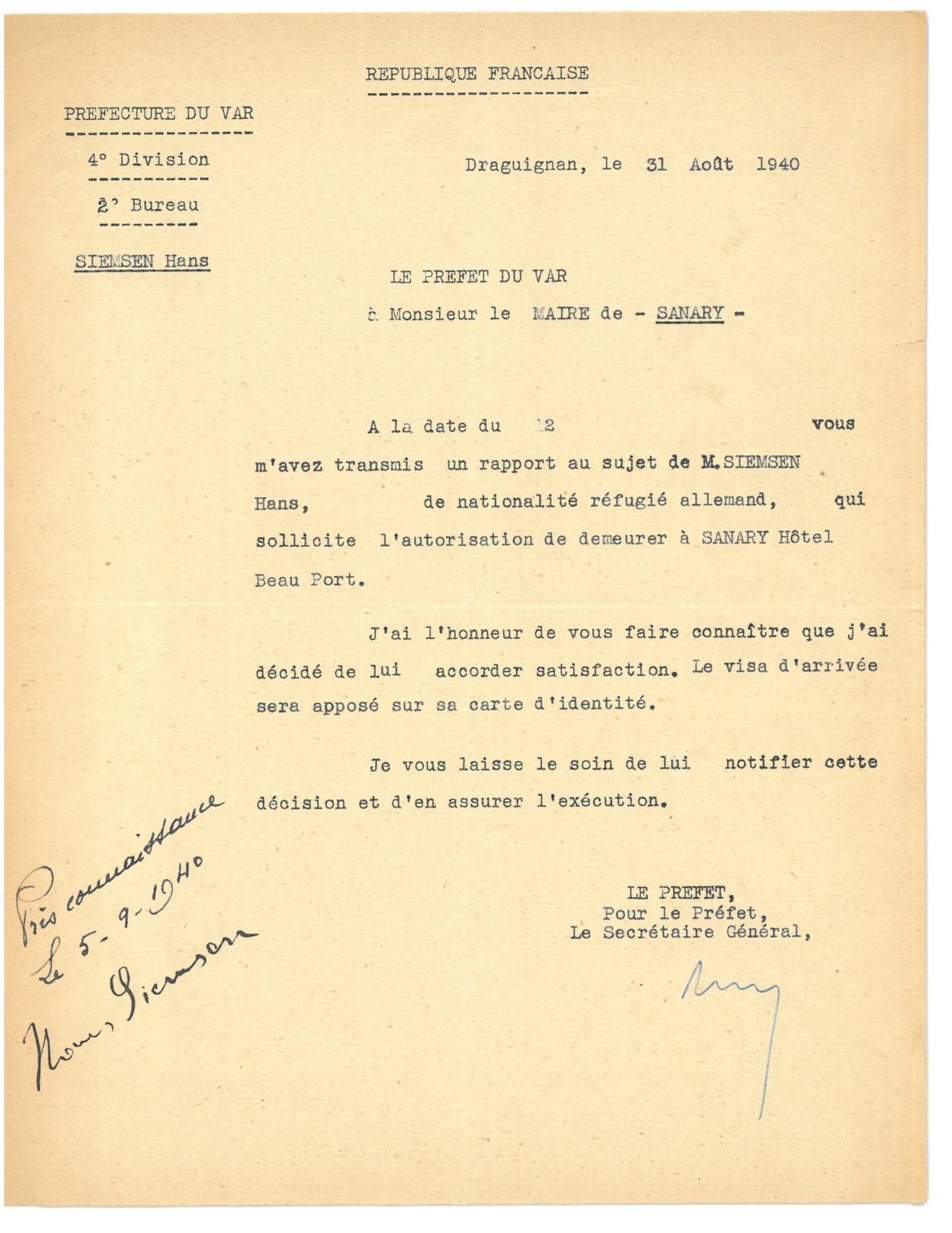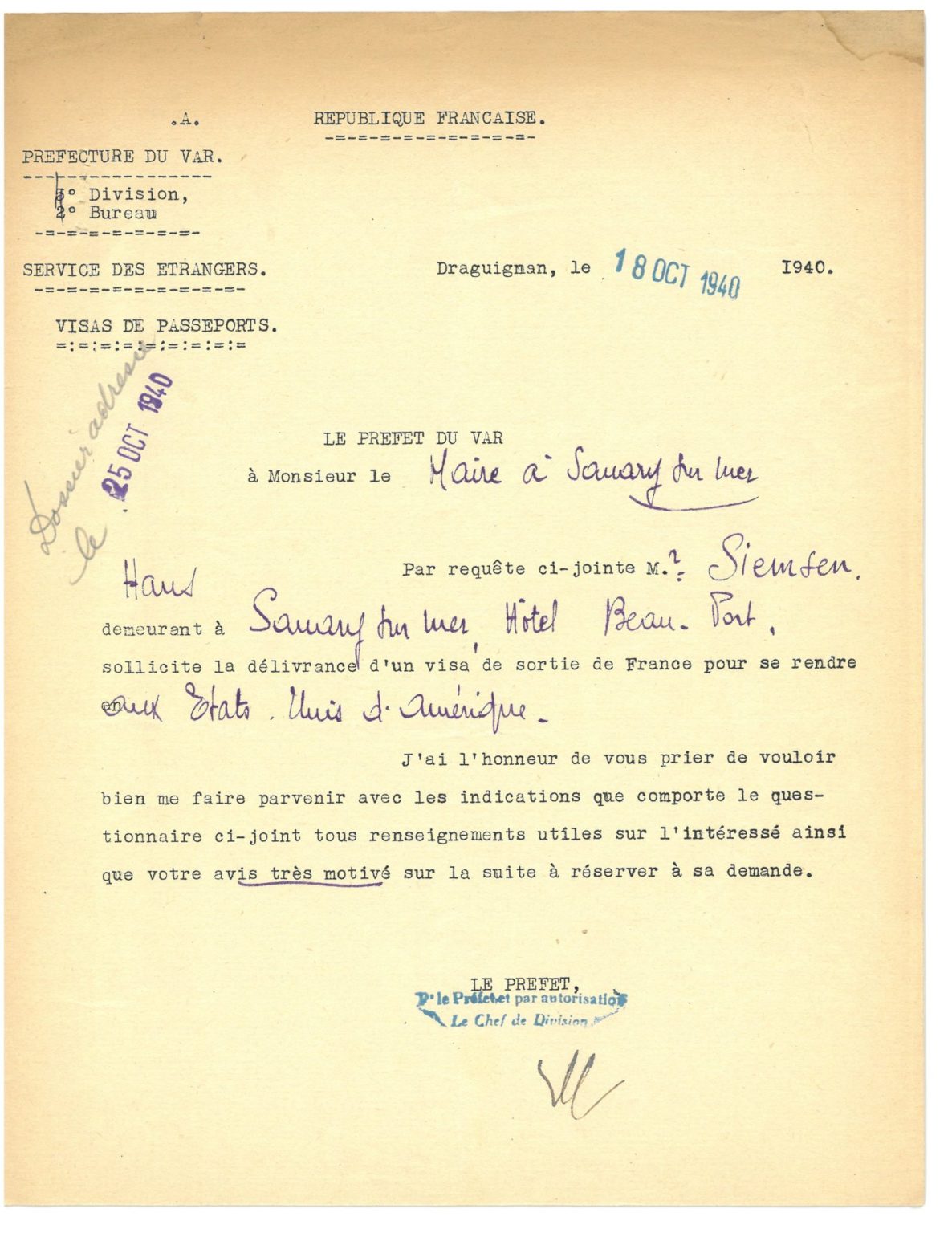Hans SIEMSEN (1891-1969)
He was one of the great reviewers of the Weimar Republic and a pioneer of film criticism, but in 1934 he had to flee Nazi Germany because of his political stance and his homosexual publications. Initially exiled in Paris, he discovered Sanary during his travels in the summers of 1937 and 1939. After being interned in the Colombes and Chambaran camps, he found refuge with his friend Walter Dickhaut in Sanary in 1940. Stripped of his German nationality by the Nazis, he fled to the United States in 1941.
Hans Siemsen was the youngest of three brothers and a sister, whose father was a Protestant minister in Westphalia. During the Great War, the four children left the church and turned to social democracy*. Hans apprenticed in a bookshop and studied art history. In 1913, he was in Paris and socialised with the Germans at the Café du Dôme, including Franz Hessel. A combatant in 1916 and 1917, he was seriously wounded and supported the Bolshevik revolution at the end of the war.
From 1919 onwards he lived in Berlin and gained notoriety as a film critic for various magazines and newspapers such as Weltbühne, Berliner Tageblatt and Frankfurter Zeitung. He published articles on Charly Chaplin and Asta Nielsen, Jean Cocteau, jazz, anti-Semitism and others. The German humour poet Joachim Ringelnatz was his friend and the writer Kurt Tucholsky his admirer. In 1930 he was sent to Russia by the Frankfurter Zeitung to do a report, but over the years he distanced himself from communism. He became involved in the fight against the criminalisation of homosexuality and the death penalty. When the Nazis came to power, Hans Siemsen, as a gay socialist, was doubly threatened.
In 1933, he escaped arrest by chance and went into exile in Paris. He met Walter Dickhaut, eleven years his junior, who became his companion and whose experiences inspired him to write his novel Die Geschichte des Hitlerjungen Adolf Goers. The book dealt with (repressed) homosexuality in the Hitlerjugend (Hitler Youth) and was published in English in 1940 thanks to Klaus Mann. That same year, Siemsen was stripped of his German nationality and placed on the Nazi wanted list. In 1947 the book was published in German.
Siemsen discovered Sanary in the summer of 1937 and returned there with Walter Dickhaut in the summer of 1939. When the Second World War broke out, he was interned at the Colombes stadium, then from May to July at the Chambaran camp at Viriville in Isère. He escaped in 1940 and found refuge in the Villa l’Enclos in Sanary, where Walter Dickhaut joined him after eleven months’ separation. Siemsen considered it almost a miracle that they were still alive, but their situation was very precarious. They live in total destitution and constant anxiety. Against this backdrop, the reunion in Sanary with Franz Hessel, his long-time friend, was comforting. But Franz, exhausted by two internments in the camps, died in January 1941. In February 1941, Hans Siemsen and Walter Dickhaut left Sanary and fled again. With the help of Varian Fry and Hubertus Prinz zu Löwenstein, they emigrated to the United States via Lisbon.
When the American authorities denied Walter Dickaut entry into the United States, Hans Siemsen settled alone in New York. For two years, he worked under the pseudonym “Pastor Silesius” for the radio station The Voice of America, but despite this work, he failed to establish himself. His connections with other emigrants were severed, friendships broke down, and he became an alcoholic. Eventually, he returned to Europe and was in France by 1948. A year later, his brother Karl took him in in Düsseldorf. Siemsen was no longer able to write and became dependent on care. Ill and forgotten, he died in a Workers’ Welfare home in Essen on June 23, 1969.
*Social democracy is a non-Marxist reformist socialist movement, embodied in particular by German and Scandinavian socialism. Social-democratic parties are closely linked to trade unions, which explains their preference for and practice of negotiation and consultation to reform society, rather than social struggle.
TO FIND OUT MORE
The Jacques Duhamel multimedia library in Sanary-sur-Mer has a collection of books on the theme of the memory of exile in Sanary.

